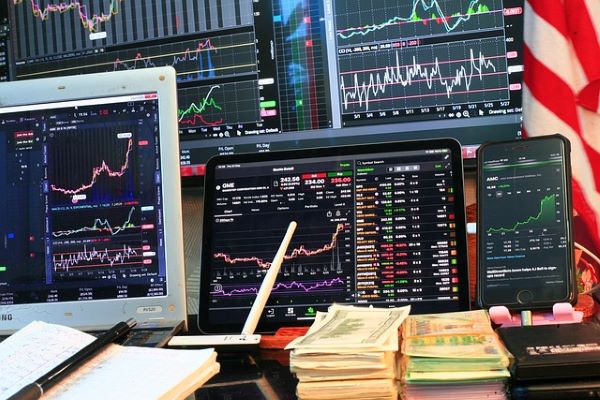A company paybacks to their shareholders in one of the two ways: Dividends and/or buybacks. Due to higher tax outgo on dividends, many cash-rich firms, especially in the IT sector, prefer buybacks to help promoters save on taxes. However, post-Budget 2024, this will change drastically as companies will no longer be able to provide tax benefits to shareholders after the change with the new buyback tax.
Let’s examine the latest changes in buyback taxes and understand why companies might stop focusing on buybacks and shift solely to dividends.
Currently, companies conducting buybacks have to pay a buyback tax of over 20%, but shareholders tendering their shares do not pay any tax. This will change starting October 1, 2024:
- The amount received from share buybacks will be treated as a dividend for the shareholder and taxed at their applicable slab rate.
- The income from share buybacks will be considered income for the beneficiary shareholders, who will have to pay tax on gains without indexation benefits.
- Companies will no longer need to pay any tax on buy back.
The new tax rules will adversely affect promoter shareholders who fall into higher tax slabs, making them pay significantly more tax compared to the company. This move will help the Centre mobilize more taxes and address an anomaly that placed a tax burden on all shareholders, regardless of their participation in the buyback.
Although the government’s intention seems to be to curb speculative investments, it could unintentionally affect genuine investors as well. The new tax landscape complicates matters further by classifying the consideration received from share buybacks as dividend income, making buybacks less appealing to investors. With no advantage for shareholders from buybacks, companies might find it pointless and thus may shift their focus to dividends.
Also Red: Now 15% STCG on Shares and Mutual Funds Is Unfair: Know Why We Need Change
Now Know Why Companies Might Stop Buybacks After New Buyback Tax
- Increased Complexity: The new tax rules make the buyback process more complex, potentially deterring companies from undertaking buybacks.
- Alternative Options: Companies might consider alternative options like dividends, which are taxed at lower rates, to reward shareholders.
- Impact on Share Price: The tax changes could negatively impact share prices, reducing the effectiveness of buybacks in supporting share prices.
- Regulatory Uncertainty: Companies might wait for clarity on tax rules and potential amendments before proceeding with buybacks.
Additional Factors
- Tax Liability Shift: The tax liability has shifted from the company to the shareholders, making buybacks less attractive.
- Higher Tax Burden: Shareholders, especially promoters, will face a higher tax burden, diminishing the benefits of buybacks.
- Reduced Attractiveness: Due to tax implications, buybacks may become less attractive, prompting companies to explore other methods to reward shareholders.
Which are the Top Companies Engaging in Buyback?
Data shows that major IT companies repurchased shares worth over ₹1 lakh crore through at least 12 buybacks between 2020 and 2024. In December, Tata Consultancy Services concluded a ₹17,000 crore buyback. Promoter Tata Sons tendered shares worth ₹12,284 crore in this buyback and had also tendered shares in 2017, 2021, and 2022, mopping up a total of $5 billion (₹41,895 crore). The changes in Budget 2024 will impact IT and other companies conducting buy backs from a tax and compliance standpoint.
Government and Expert Opinions on New Buyback Taxes
The government justified the move in the budget memorandum, stating that dividends and buybacks should be treated similarly as both are methods to distribute accumulated reserves of a company.
Sanjay Sanghvi, Khaitan & Co, not only expressed disappointment over the tax hikes, but also mentioned how they could have been avoided. Sujith Kumar A, founder of CFINANCIO Consulting, noted that while institutional investors can manage compliance and cash flow challenges, retail investors struggle with tax compliance due to a lack of awareness.
Experts indicate that the IT industry, which significantly contributes to India’s exports, might see a reduction in buyback activities as investors cope with new tax burdens. While analysts and investors adjust to the new regulations, the overall impact on the sector remains uncertain.
Abhishek Goenka, founding partner of Aeka Advisors, criticized the change in taxation of share buybacks, arguing it was not well-considered. He said, “Taxing buybacks as dividends while recognizing a capital loss benefits larger investors disproportionately at the expense of smaller ones. Additionally, many buybacks are funded from share premiums, and taxing them as dividends contradicts the principles of dividend taxation.”
Overall Impact
The changes in Budget 2024 regarding buybacks, LTCG, and STT pose significant challenges for investors. Retail investors and short-term traders may find these new policies costly. In this changing tax environment, strategic planning and informed decision-making are essential to make the best use of investments and seize future opportunities.


